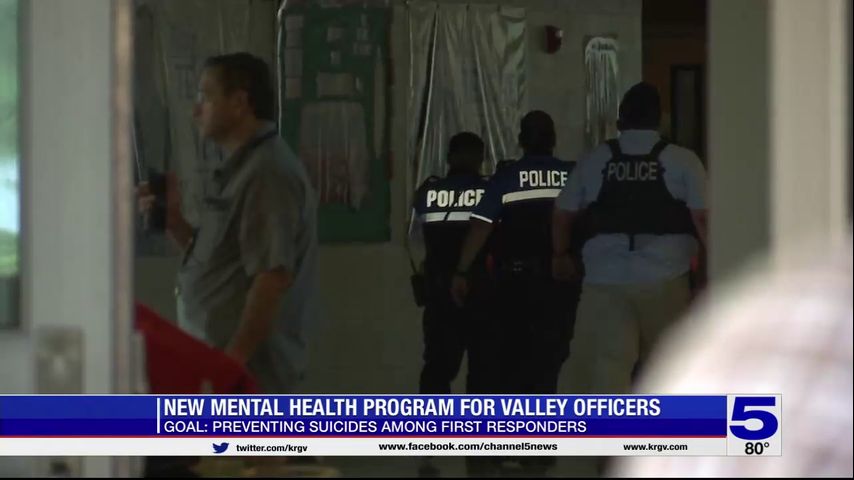[ad_1]
Drowning, crashes, and crimes are traumatic experiences that often involve law enforcement.
Officers are constantly working to help others, but are not getting help for themselves.
“Officers are dying by suicide on a large, I guess on a large scale,” Regional Director of Texas Law Enforcement Peer Network Michael Mata said.
Texas Law Enforcement Peer Network group launched their services in April, since then, they’ve worked to prevent suicides among officers.
“There’s a stigma associated with them receiving that mental health intervention,” Alton police Chief Jonathan Flores said.
According to Flores, one of those stigma is job loss. Flores says officers fear they will appear unfit for the job if they look for help with mental health.
“It’s our responsibility not to only educate ourselves, but to educate our community that our officers are providing a service to them,” Flores said. “And it’s OK that they seek help if and when they do need it.”
At times, it can be hard for officers to find the right person to talk to.
“They see things on a daily basis that the average citizen does not see,” Flores said. “They experience trauma on a daily basis.”
According to a report from BlueHealth.org, there have been 94 officers and 112 total first responders who have committed suicide since Jnauray of this year, and that is not including some that may have not been reported.
“People that are not in law enforcement don’t know what to say to an officer or how to respond to different things,” Mata said.
Texas Law Enforcement Peer Network program helps first responders get help.
“It allows officers to make contact with officers that are in network through a mobile app and are able to talk more when they need to talk to somebody, whatever hour they need to get a hold of them,” Mata said.
The officer-to-officer connection is just one thing the program offers.
Mental health professionals who know how to deal with the issues officers see are also on hand.
“Because I am a separate entity from, you know, the police department that they work for, there is no cross of information,” Director of New Dan Counseling Services Dr. Elizabeth Chavez-Palacios said. “There is that privacy, there is that confidentiality that exists.”
Chavez-Palacios says there is a pattern she sees within officers in the Valley.
“Within the Hispanic culture, I do see a lot of nuances here as well with regards to the machismo, and you know I just got to suck it up you know, I do what I got to do,” Chavez-Palcaios said. “So we have to understand that as law enforcement first responders, we got to take care of ourselves as well.”
“The number one tip I can give them is talk to each other, no one understands better what you all are going through than each other,” Nueva Luz Foundation Dr. Norma Villanueva said.
“We see the statistics around the state, showing that there is an issue here,” Flores said. “I urge all agency administrators to do their part to take care of the men and women that take care of our community.”
Texas Law Enforcement Peer Network is also working to expand the program to include firefighters in the future.
[ad_2]
Source link


